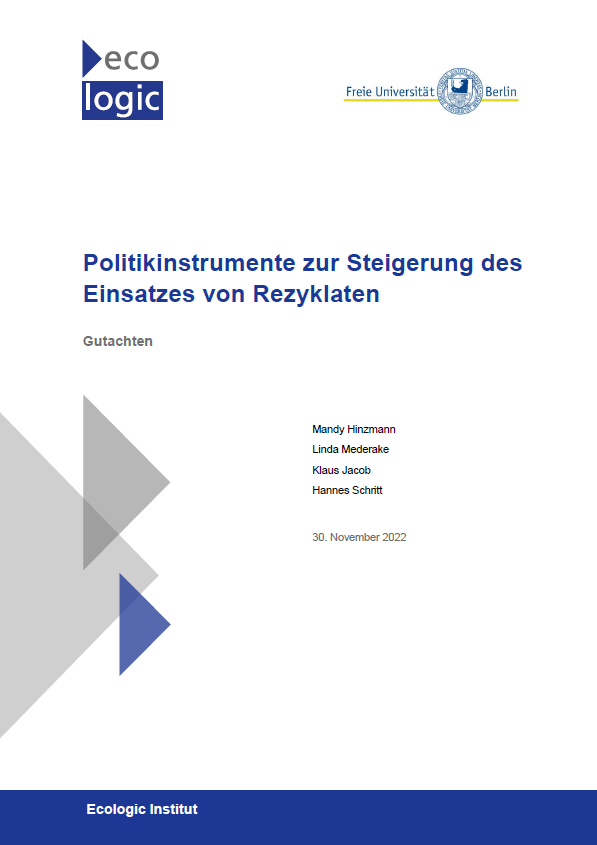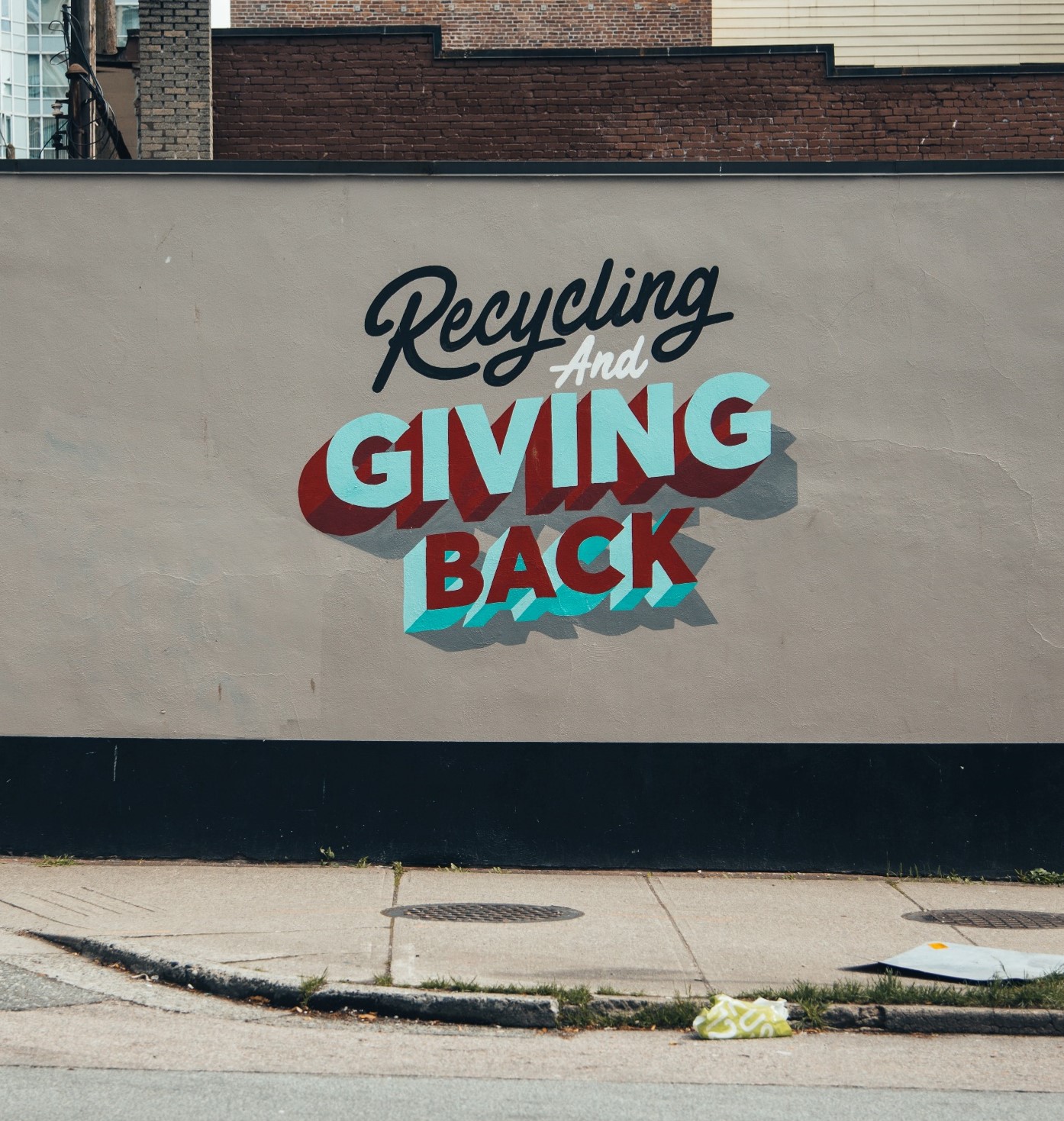Politikinstrumente zur Steigerung des Einsatzes von Rezyklaten
- Publication
- Citation
Hinzmann, Mandy; Mederake, Linda; Jacob, Klaus; Schritt, Hannes (2023): Politikinstrumente zur Steigerung des Einsatzes von Rezyklaten. Ecologic Institute, Berlin.
Raw materials are the basis for material prosperity in Germany. However, Germany’s high demand for raw materials results in considerable negative environmental impacts and high costs for the domestic economy. One way to utilize resources more efficiently is to increase the use of recycled materials. With its strong waste management system, separate collection, and high recycling rates of over 80%, Germany is fundamentally well placed to increase the use of recyclates. So far, however, this potential has only been partially harnessed. Against this background, the authors of this expert assessment analyzed existing obstacles to the use of recyclates and instruments to overcome them. The assessment provides recommendations for a successful policy mix to increase the use of recyclates.
Overall, the analysis shows that there is considerable potential in Germany to facilitate, stimulate, and ultimately increase the use of recycled materials through political regulation and incentivization. Recommendations for action on how the use of secondary raw materials can be specifically promoted in Germany can be derived from the findings. A suitable policy mix should primarily be aimed at overcoming negative externalities (i.e. environmental and social impacts that are not priced in) and informational barriers along the value chain. Specifically, the authors of the report recommend the following for the design of a policy mix:
- use economic instruments to compensate for existing competitive disadvantages for recyclates compared to primary raw materials
- use legal requirements to improve the recyclability of materials and products and facilitate the use of secondary materials
- stimulate demand for recyclates – e.g. through public procurement – and thereby create a reliable sales market
- use voluntary agreements in a targeted manner to accelerate the transition to high-quality recycling of materials
The report was prepared as part of the project "Strategies and Instruments for Improving the use of Recycled Materials" and submitted to the Office of Technology Assessment at the German Bundestag (TAB). It has been incorporated into the TAB Working Report No. 207 (only available in German) (doi:10.5445/IR/1000168838) and the TAB Focus No. 44 (doi:10.5445/IR/1000169039).





